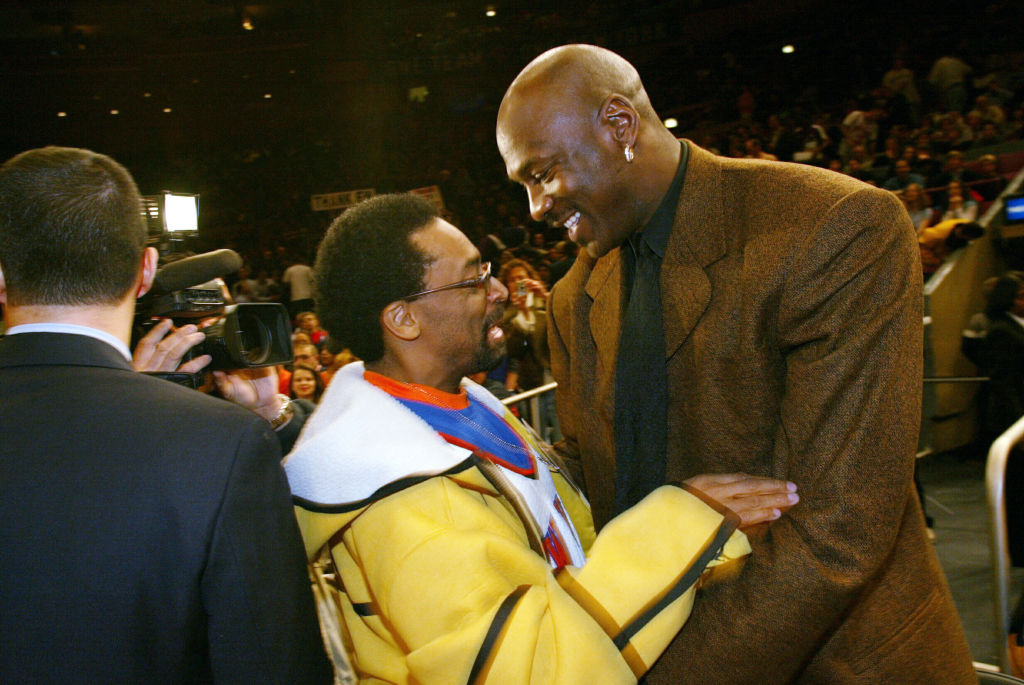NBA
Michael Jordan Almost Signed with the New York Knicks in 1996

Over the past few years, the New York Knicks have had problems getting free agents to sign in the Big Apple, LeBron James, Kevin Durant, and Kyrie Irving just to name a few. However, in 1996, they almost pulled off what would have been the biggest free-agent signing in NBA history: Michael Jordan. Yes, Michael Jordan, the same man who tormented the franchise for years.
Here’s how the story played out.
Michael Jordan was vastly underpaid by the Chicago Bulls for years
While it’s easy to think that Michael Jordan was always the highest-paid player in the NBA in his prime, that was actually hardly ever the case. Ahead of the 1988-1989 season, Jordan signed an eight-year contract in Chicago worth roughly $25 million. Chicago Bulls owner Jerry Reinsdorf, known to be a frugal man, wasn’t ever one that liked to renegotiate contracts and rarely ever did. So when salaries began to escalate in the early 1990s, MJ’s contract seemed very outdated, especially given his worth to the franchise and the NBA as a whole.
But the Bulls weren’t budging. Reinsdorf did continue to pay Jordan when he first retired in 1993 and when MJ returned to the league in 1995, he was still under that same contract, which expired following the Bulls’ historic 72-10 run in the 1995-1996 campaign, which ended with Chicago’s fourth NBA title. Jordan made just $3.85 million that season but Reinsdorf knew that he was going to have to pay a little more with a new deal. He just didn’t realize how much more.
How the Knicks deal came together
During the 1996 playoffs, Michael Jordan and his agent, David Falk, had discussed the idea of an $18 million “balloon season” for 1996-1997. Why that number, you ask? Well, that’s because that’s about what New York Knicks center Patrick Ewing had gotten for the ’95-’96 season, the highest one-year salary in NBA history at the time. The Bulls knew that Jordan would likely want more than that and seemed to be prepared to go as high as $20 million to make up for all the years that Jordan had been underpaid in Chicago. However, Falk had something else in mind and put together a deal that would have drastically changed the course of the NBA.
At that time, the Knicks were jointly owned by Cablevision, Inc., and ITT, who owned the chain of Sheraton Hotels, which became the key. Heading into the summer of 1996, New York had about $12 million in cap space and they were ready to offer all of it to Michael Jordan. However, knowing that wouldn’t be enough, Falk wanted to add an extra $15 million for Jordan to become a spokesperson for ITT-Sheraton. Normally, that’s seen as salary-cap avoidance and isn’t allowed. However, with Jordan being such a unique commercial presence, the NBA was actually set to allow the extra deal to be made without that money counting against the cap.
So a deal was put together worth $25 million for Michael Jordan to join the New York Knicks and it almost happened.
The Bulls had one hour to match the Knicks’ offer to Michael Jordan
While seemingly willing to go to $20 million, the Bulls thought that nobody could pay Michael Jordan more than $10-12 million given the cap rules. So Reinsdorf & Co. assumed that MJ would almost have to return to Chicago to get the money he was looking for. That led to a reported phone call from Falk to Reinsdorf that Sam Smith discussed in 1997 for the “Chicago Tribune.”
“Although neither side would reveal the exact wording, the message was clear: The Bulls had one hour, maybe the rest of the day, to beat a $25 million offer from the Knicks, or Michael Jordan was going to sign with New York.”
Sam Smith of the “Chicago Tribune” on Michael Jordan nearly signing with the New York Knicks
There’s certainly the possibility that this was all one big bluff but Reinsdorf couldn’t take that chance and made Michael Jordan the highest-paid player in the history of American team sports with a $30.14 million contract for 1996-1997. As we all know, the Bulls went on to win two more titles before Jordan again retired in 1998.
But Michael Jordan and Patrick Ewing together on the New York Knicks is certainly an interesting thought, isn’t it? Ewing could never get past Jordan in the playoffs, losing five straight series to him. He won’t even watch The Last Dance because of what No. 23 did to him. Perhaps he could have gotten that elusive ring with Jordan by his side. But, as it’s always seemed to go, New York just couldn’t get their guy.











